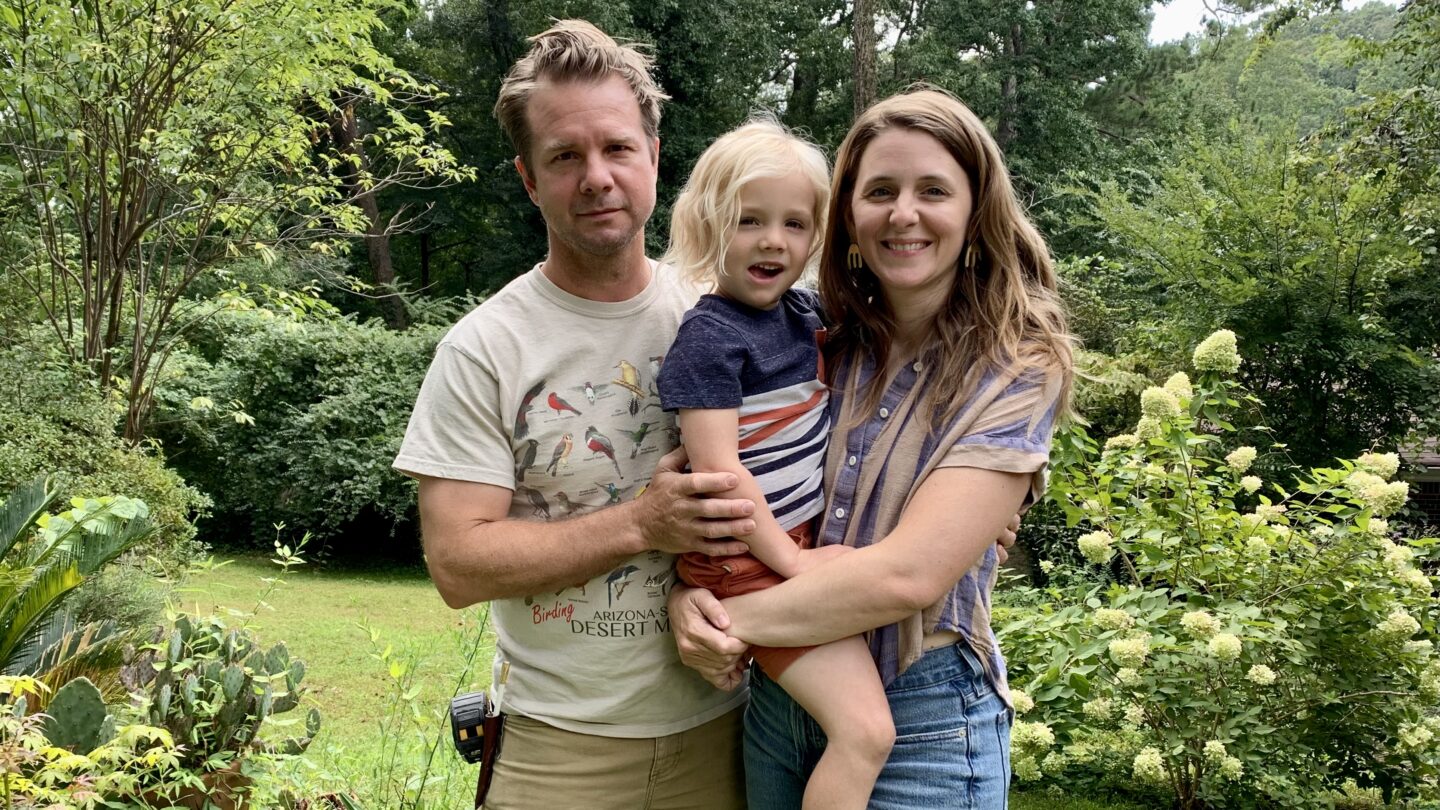It’s been three months since Georgia’s H.B. 481 law banning most abortions after around six weeks of pregnancy took effect. The law continues to fuel speculation about whether further restrictions to the procedure, contraception or fertility treatments may come next.
H.B. 481 classifies embryos as having “personhood” rights. And fertility medicine specialists and their patients fear this language could open the door to new restrictions on in-vitro fertilization and other assisted reproductive technology.
The subject of in-vitro fertilization came up at a recent gubernatorial debate, when the AJC’s Greg Bluestein asked Republican Gov, Brian Kemp about it.
“Governor, in recent weeks, two recordings have surfaced in which you left the door open, or you appeared to leave the door open, to questions about whether you’d push to ban emergency contraceptives and whether you’d back a statewide ban on the destruction of embryos. Can you tell us right now whether you’d push for these measures or any other additional restrictions on abortion now that the 2019 law is in effect?” Bluestein asked.
“No, I would not,” Kemp said.
Fertility specialists around the state aren’t exactly convinced by the governor’s answer, and neither are their patients.
Reproductive endocrinologist Dr. Jennifer Kawwass said she’s had to reassure many of the patients she’s treating with in-vitro fertilization since the state’s abortion law was enacted in July.
“These changes have added to the duress that fertility patients are already facing and they have reached out to us for clarification,” Kawwass said. “We have continued to reassure them that at the moment we’re able to practice IVF and offer the full spectrum of care.”
In-vitro fertilization, or IVF, involves extracting a woman’s eggs and fertilizing them with sperm in a lab to make embryos, which are then transferred to the uterus in hopes of achieving a pregnancy.
Unused embryos can be frozen for later use or discarded.
Kawwass, who’s also the medical director of Emory’s Reproductive Center, said if the governor or future legislatures go further with the personhood language in the law, and apply it earlier than six weeks of pregnancy, it could have dire consequences for fertility medicine.
“If personhood were defined to begin at the time of fertilization, meaning as soon as an embryo was formed between an egg and a sperm,” Kawwass said, “that could have some very significant implications for IVF treatment.”
For now, many Georgians who’ve undergone IVF are left with unanswered questions. Questions such as these from Kimberly and Kristofer Sampson, who live southwest of Atlanta:
“What are the rules around the embryos that are out there? They are fertilized.”
“Or, will we get arrested if we don’t implant the embryos?”
The couple has a four-year-old son. As he plays with toys in the other room, Kimberly said he was born after several miscarriages and two years of trying to conceive.
And, after he was born, they wanted to try for another child.
“And I had another miscarriage,” she said, “so that would’ve been my third miscarriage.”
Doctors suggested the Sampsons try IVF to increase their chances of pregnancy.
They began the treatment last November, and life became a blur of medications, doctor visits and injections.
“It was definitely a struggle,” Kimberly said. “When you’re injecting hormones into your body and then dealing with that, that’s a lot on its own. It was a lot of medication — vials, vials and vials. A lot of bruising.”
But, after months of treatment without a successful pregnancy, they’re now taking a break.
The journey is emotional, Kristofer said.
“Trying and wanting a baby. And months of, you know, ‘dang it, dang it, dang it.’ That’s hard to take when you really want to have a child,” he said.
The Sampsons aren’t sure yet when or whether to try IVF again. Until they come to a decision, they’re saving a few frozen embryos in storage.
But with Roe v. Wade abortion guarantees overturned and Georgia’s law banning most abortions after six weeks in effect, they’re uncertain what the law could mean for their freedom of choice.
“I don’t want anybody telling us what we have to do,” Kistofer said. “I don’t want anybody to suddenly say we’re bad people If we decide to just terminate these eggs, I don’t want to be judged for whatever our decision is. I don’t think it’s really anybody’s business.”
And at the moment, at least, Georgia’s restrictions don’t specifically apply to fertility treatments.
This week, a Fulton County Superior Court judge will hear arguments in an ongoing ACLU lawsuit against the abortion law. It’ll be up to the court to decide whether it interferes with physicians’ ability to treat patients under the Georgia Constitution.









